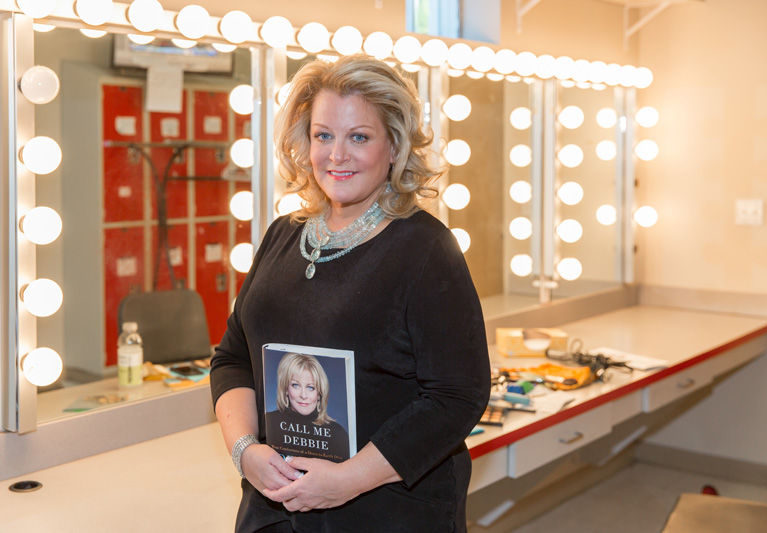
To have the inaugural Deborah Voigt International Opera Competition in Vero Beach was a very big deal indeed, a significant addition to the city’s already highly respected cultural milieu.
Voigt is an opera superstar, one of the world’s most versatile, sought-after singers, known for the stunning power and beauty of her voice. A celebrated dramatic soprano, she is internationally revered for her performances of Wagner, Verdi and Strauss, among others, in the great opera houses of the world.
Vero Beach Opera Artistic Director Roman Ortega-Cowan and President Joan Ortega-Cowan have known Voigt since 2003, shortly after they took the VBO reins. In 2007, Voigt joined with VBO to found the Deborah Voigt / Vero Beach Opera Foundation, with the purpose of promoting and supporting young opera singers.
This year Voigt brought to the VBHS Performing Arts Center her International Opera Competition, with 31 of opera’s finest young talents (ages 20-30), from the U.S., Russia and South Africa, chosen from more than 100 applicants.
After preliminaries Thursday and Friday, the finalists – six women and two men – were showcased in the Finals Concert Saturday evening.
The judges’ panel included: Voigt, Eva Franchi, Dr. James Drake and Roman Ortega-Cowan.
First prize, $10,000 from the Deborah Voigt/Vero Beach Opera Foundation, was awarded to soprano Anush Avetisyan, from Philadelphia. The elegance and clarity of her voice were well-displayed in arias from Leoncavallo’s Pagliacci and Puccini’s La Boheme.
Second prize, $5,000 from the VBO, went to Meroe Adeeb, a soprano from Maryland. Arias from Donizetti’s Don Pasquale and Mozart’s Die Zauberflote revealed the range of her expressive physicality and rich vocals.
The $3,000 third prize, from the Sergio Franchi Music Foundation, was presented to soprano Meryl Dominguez, whose vocal purity, range and interpretation suited her arias from Mozart and Stravinski.
A number of other singers received $1,000 prizes.
On the eve of the Thursday preliminaries, an audience of opera lovers and Voigt fans gathered at the PAC for “A Evening with Deborah Voigt,” a candid interview by local media personality Tania Otega-Cowan, followed by an audience Q&A.
Prior to the interview, Voigt thrilled the audience with a three-selection “mini-concert.” Later, she signed copies of her autobiography.
The title of Voigt’s book, “Call Me Debbie: Confessions of a Down-To-Earth Diva,” is right on the mark: She’s charming, very funny, and definitely down-to-earth, taking the stage in chic black, with no frills, just shiny blonde hair and a beautiful, animated face. So approachable was she that, when Ortega-Cowan offered to send her the interview questions, Voigt declined, preferring no pre-interview prep and no off-limit topics. She even brought Steinway, her tiny Yorkie.
Not wanting her book to cover “one part of my life and not another,” Voigt pulls no punches, detailing both her rise to the top of the opera world and her long struggle with weight, relationships and addiction. One chapter, “The Little Black Dress” episode, caused quite an international furor in 2004.
A few months before hurricanes Frances and Jean tore through her barrier island condo, Voigt had contracted to sing “Ariadne,” a signature role for her, at the Royal Opera House, Covent Garden, London. The director envisioned Ariadne in what fashionistas know as “The Little Black Dress.” At 330 pounds, Voigt didn’t fit the vision or the dress. The director fired her for being too fat, an outrageous, unheard move in the opera world.
Wrote Voigt, “It was no secret to anyone what I looked like when I signed on for the role.” Although they could have overridden the director, Covent Garden acquiesced to his wishes and paid out Voigt’s contract in full.
When word got out, the media hurricane hit, and the story ran in major mainstream publications all over the world. In a time where “it ain’t over ’til the fat lady sings,” people were outraged: They expected their opera singers to be big. Although Voigt says she understands Covent Garden’s position, the “little black dress” has become a symbol of skewed priorities among directors who value appearance over vocal artistry.
Voigt used the Covent Garden payout to get gastric bypass surgery and, in the summer of 2008, transformed from a size 30 to a glamorous 14, she made a triumphant return to Covent Garden to sing the role from which she was fired four years before, wearing the little black dress.
Maintaining an easy-going demeanor and a sense of humor, Voigt gave straight-forward answers all evening. About overcoming her addictions, “It feels good not to live a dual life, to be one person (on and off stage.) Through the most insane moments, I found I have resilience.”
Asked how a person can help someone fighting addiction, she replied bluntly, “They can’t. Ultimately the individual has to say ‘I can’t do this anymore.’”
She speaks of having a “palpable chemistry” with the Spanish tenor Placido Domingo, and admits she once sang a karoake version of “Don’t Go Breakin’ My Heart” with the electrician on a Met tour.
She tells young artists that, in order to project believable emotion, they must have experienced it, and she admits, “I was the queen of the competitions in my day, but I never got one single job from an audition.”
At 55, Voigt is adjusting her pace. “This is the first time I don’t have an opera script in my hand,” she says. Singing professionally since she was 25, she’s looking at roles she hasn’t tackled yet, and says, “I sing for God, for others and for myself now, too.”



